Greetings, fellow Steemians, since Steemit is still experiencing indigestion (at least on my side...it took me four tries to post a comment to a friend earlier this afternoon), I'll continue to stay away from posting in the African infrastructure series for now, even though we were just starting to get to the good part (infrastructure project preparation).
Instead, since the US Ambassador to the United Nations, Nikki Haley, had an unsettling experience in South Sudan, needing to be evacuated in short order yesterday, my thoughts turned back to a brief visit there in July 2012 at the request of various organs of the African Union, to assist the brand new South Sudanese government to come up with an infrastructure plan.
Here are a couple of thoughts I can share with you without breaking any confidences. I'm really disappointed to find that my personal photos of that trip are lost somewhere in the mists of cell phone upgrades and laptop transfers. Unfortunately the few photos I'll share with you today aren't mine, but might give you a bit of an idea what the capital city, Juba, was like, at least in 2012. I'm afraid it's going to be more stream of consciousness than a story, but here goes anyway.
Caveat of note: I was there only three days, so these are at best impressions. However, my experience of other African countries, even Guinea Bissau when it was run by a military junta, was on a different scale to this. South Sudan is the product of more than a generation of war. It's what you get when you cross ethnic hatreds with oil, and steep this mixture in a sauce of naked greed for decades.
Why were we there?
The South Sudan government expected to have significant revenues from oil sales back to Sudan through the existing pipeline, and wished to convert some of those revenues into basic infrastructure (water, energy, transportation and ICT) for its people, many of whom had only known war for their entire lives. Social infrastructure (education - especially institutes of higher learning, health and housing) were also deeply important to them. Our job was to develop a simple, high level master plan for the infrastructure.
What does it look like?
Juba looks like a lot of places in Africa, frankly.
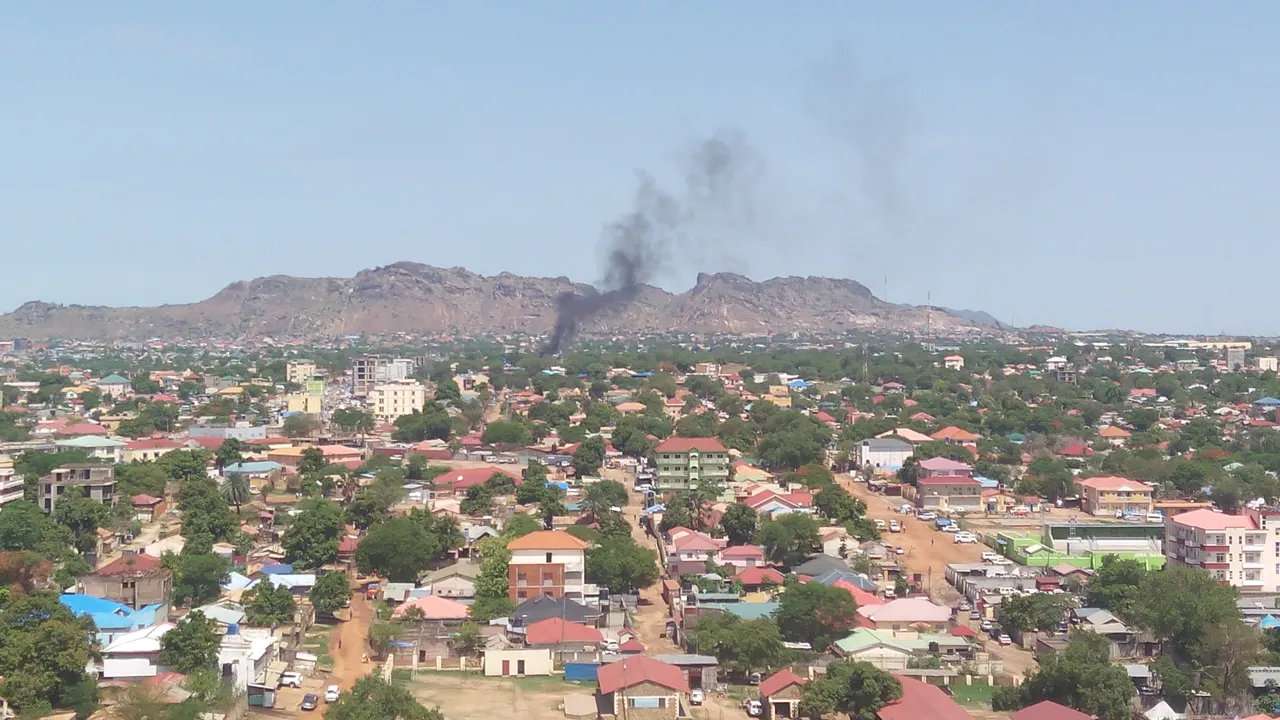
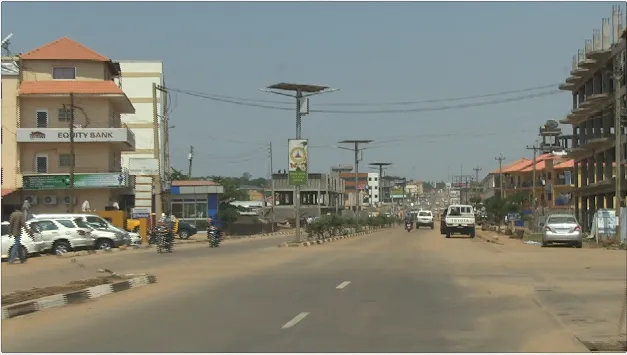
Where is it in Africa?
Just west of the Horn of Africa.
Sudan used to be the biggest country in Africa until South Sudan gained its independence. It's a landlocked country sitting between some reasonable stable neighbours and others with more testy temperaments. In the interests of diplomacy, I'll leave it to you which of its neighbours fall into which category.

What was the condition of the South Sudanese at the time?
Not great. If you're really keen, you can look up many different parameters on the World Bank website. Let me show you in a couple of maps and with two telling anecdotes from our meetings.
It's really sparsely populated.
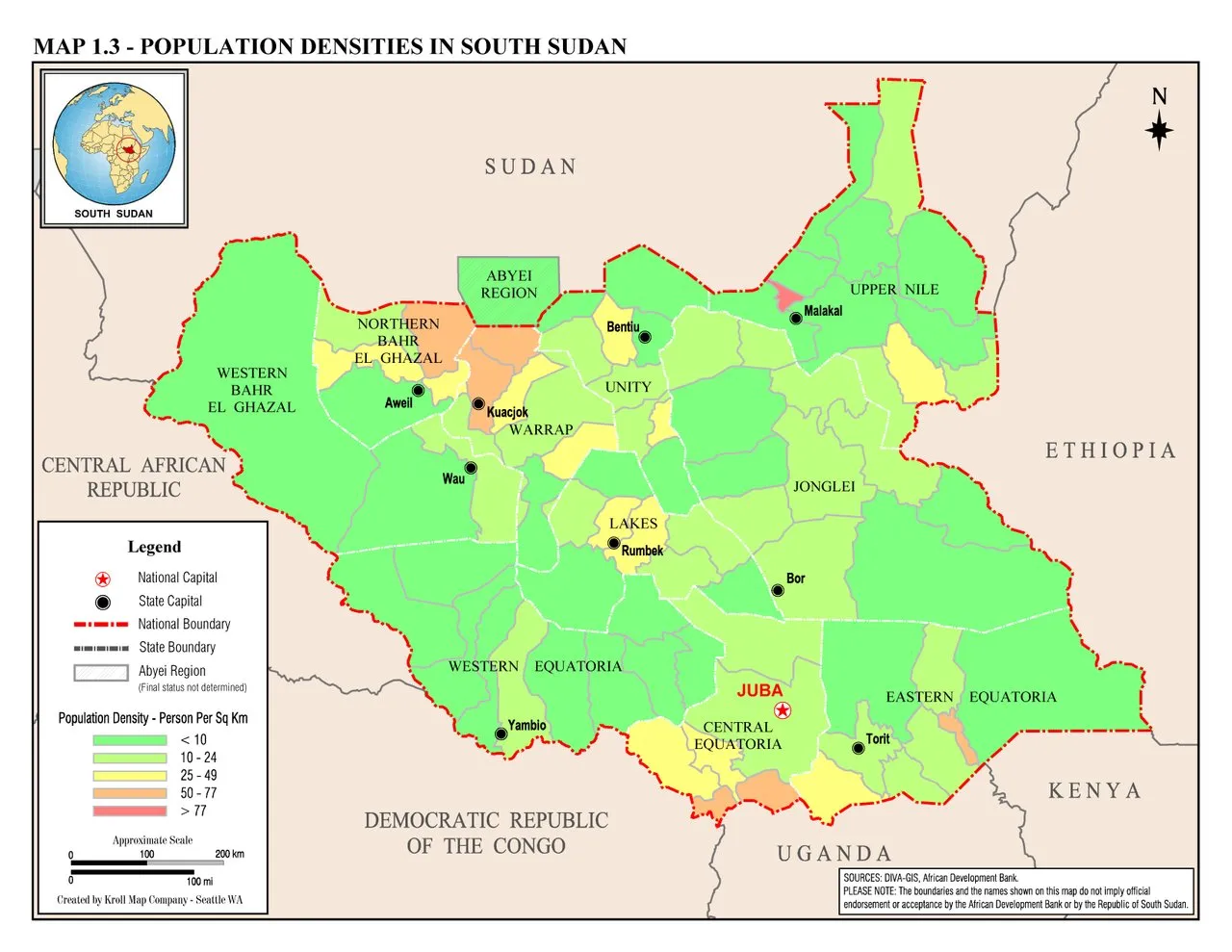
Nevertheless, it had one of the poorest populations in the world.
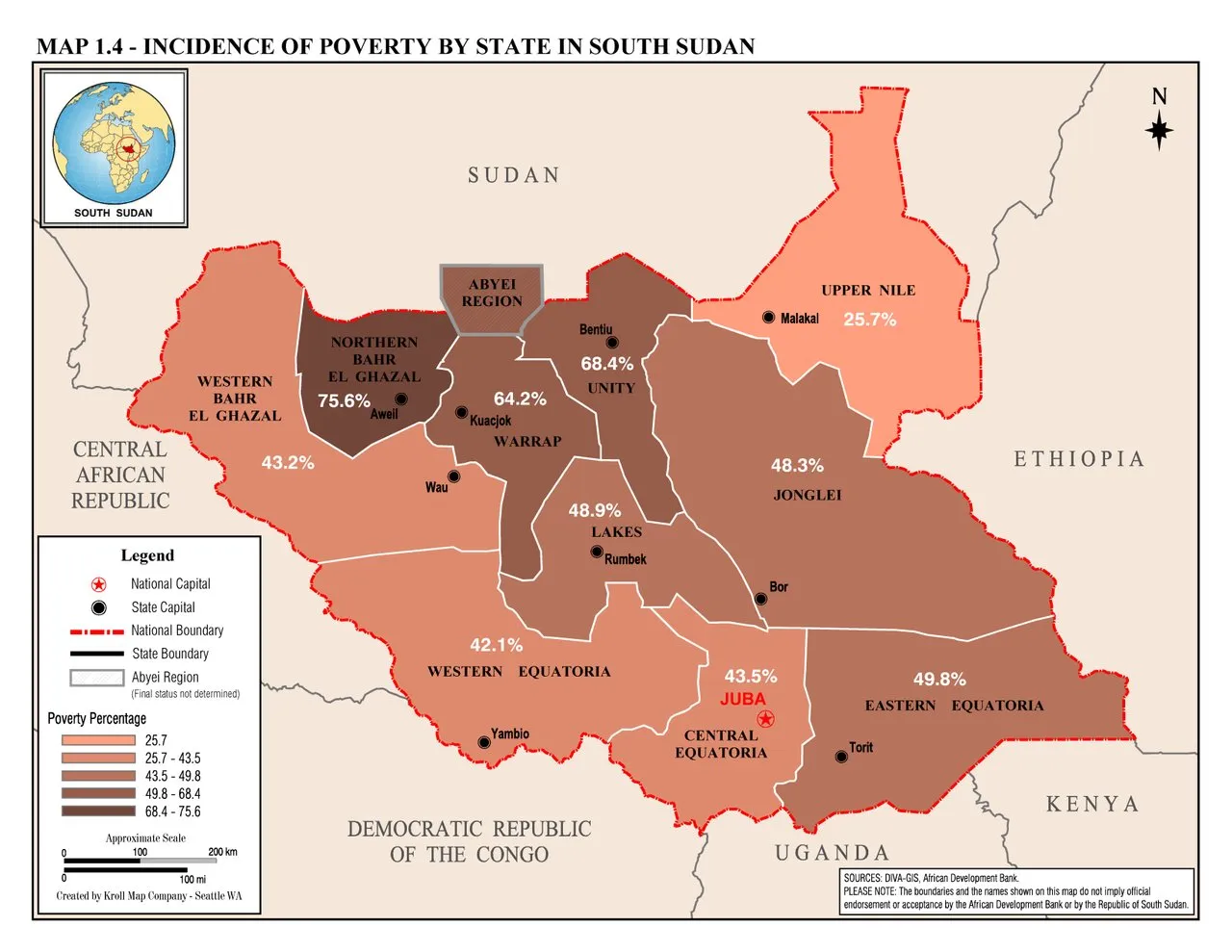
What contributed to this poverty?
According to one of the ministers we spoke to, who shared this with tears in his eyes, they had spent over a generation in civil war. As a general, he said he could read maps extremely well, but couldn't read words. He said he was dedicating his life to helping his people get the education he didn't get - although he said learning under a tree was better than not learning at all.
Another person we spoke to, let's just say a senior expatriate, said bluntly that almost the entire population was uneducated and there was effectively no economy in South Sudan. Since the Sudanese government shut off oil shipments through the pipeline before we got there, revenues to the newest state in the world quickly dried up and aid became effectively their only source of income. The oil revenues would have been a mechanism for the government to provide a basic income to the population - basically paying them to keep the peace. We came away from that discussion with a renewed appreciation for South Africa and our ability to work out our differences with each other (okay, that was in 2012).
The Nile River
When we got to Juba, it took us a while to internalise that we were right next to the Nile River, even though we knew it intellectually. This was the second time I'd "been" to the Nile - several years before I'd gone to Khartoum, now the capital of Sudan, and done a short boat cruise down the Nile. This was different. Khartoum was quite a clean, modern(ish) place, where the team I was with at the time had no trouble walking around the streets. We noticed that there were a number of concrete structures by the side of the road that provided drinking water. Hey, it's hot in Khartoum.
What was so striking to us as we were driven around for a quick tour of the city was that right next to the Nile River, there were water tankers uploading water to distribute in town. We weren't there long enough to figure out how or even if the water was treated before being distributed, but it seemed like such a tragedy that the city is on one of the world's most famous rivers and had no (or little) treatment and piped distribution from source. We didn't find out on this trip what the sewage treatment dispensation was, either.
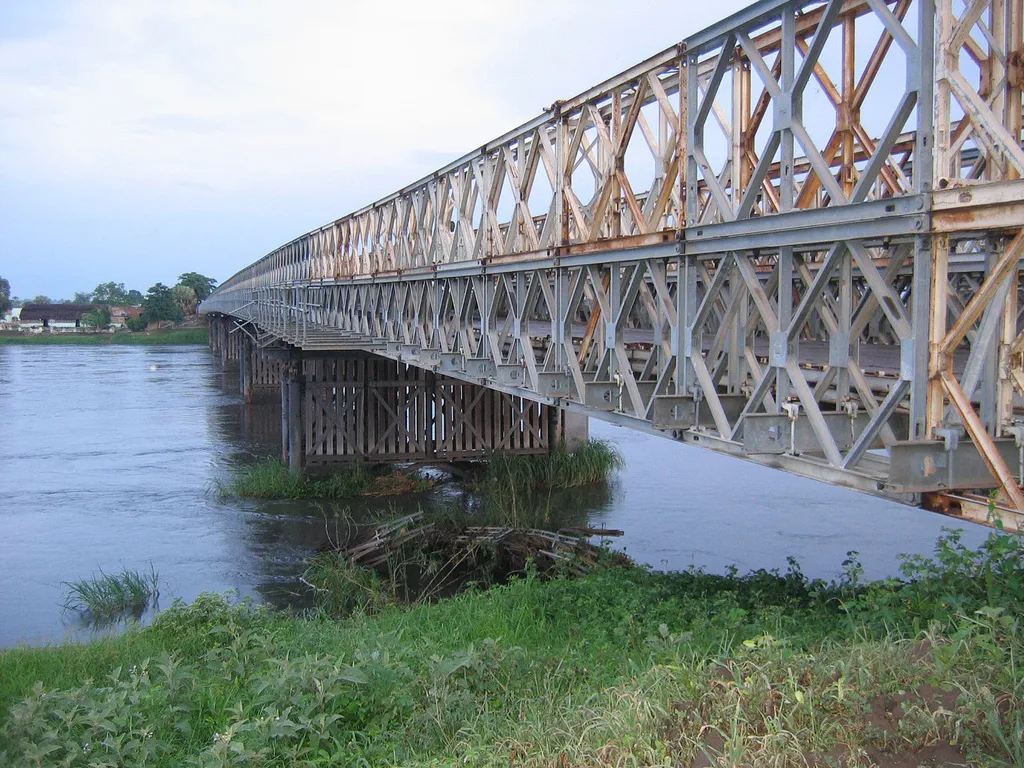
While the bridge I remember across the Nile was a 4-lane tarred bridge, we weren't allowed to take photos and have had to settle for memories. At least you can see a bit of the Nile River in this photo!
The UN compound
From memory, we spent quite a bit of time there as the UN was part of our client group and the compound had a terrific buffet lunch, with plenty of bottled water on tap, as it were. I say terrific not because it was gourmet, or Dijon, or anything fancy like that. I say terrific because it didn't make us sick (at either end), for which we were deeply grateful.
The compound also housed the offices of the African Development Bank, where we spent a little time familiarising ourselves with the challenges and what the Development Finance Institutions were planning in terms of infrastructure finance for the country. What was notable to me was the number of people in our group who visibly relaxed once we were in the compound. I seem to remember there had been an incident of some sort in Juba the week before we got there and the regulars were a bit jittery.
Our "hotel"
It is so unfortunate that I can't find the photos of our "hotel". I put hotel in quotes because it was actually a collection of containers modified with air conditioning and rudimentary plumbing to make quite a decent place to stay overall.
I chose between a room with a shower WITH a tap and functioning flush toilet, with a faulty lock on the door, and one with a shower where the tap was kind of at thigh level, making showering a sit-down affair, but with a lock that worked. No prizes for guessing which one I chose.
Dinner at the hotel generally consisted of choosing from the extensive list of Ethiopian dishes - we generally chose pizzas Ethiopian style which were quite good.
Apparently the hotel was owned by an Ethiopian entrepreneur.
Closeout - women doing their part for South Sudan
At the airport leaving Juba a couple of days later, I chatted with a strikingly beautiful young woman who said she was working for an NGO up on the northern border. How did you travel during the flood season, I asked? We couldn't, she said. What I wanted to ask but didn't, discretion being the better part of valour, is how on earth is someone as gorgeous as you able to function in an environment as Wild West as this one - do you know Tae Kwon Doe? Are you a ninja? Some kind of spy?
Then there was the earnest South African human rights lawyer (also at the airport) doing cutting edge work with the government to establish, well, laws. Here we were looking at helping them create the physical infrastructure, and she was helping them to create their governance infrastructure.
Nikki Haley had gone to South Sudan earlier this week to send a stern message to the President, that the US would reduce assistance to the country. Instead she had to leave in haste for the Democratic Republic of Congo when a demonstration at a refugee camp became too intense. Why do I get the impression that had her mission to South Sudan not been cut short, she would have had nothing to report?

Team South Africa banner designed by @bearone